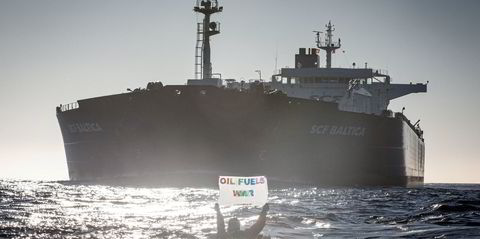Changes to the EU’s sanctions making it easier to ship Russian oil to countries outside the bloc is likely to benefit the suezmax and VLCC sectors, said Fearnley Securities.
The 27-nation group last week tweaked its regime to allow payments to “certain state-owned entities” such as Rosneft and Gazprom to prevent an energy crisis in other parts of the world.
The minor change could see oil trading move away from the “dark fleet” of ships that had previously shifted sanctioned Iranian and Venezuelan crude, said Fearnley.
EU’s ban on Russian crude shipments — which comes into force in December - has been limited to imports to the bloc. But major trading houses such as Vitol, Glencore and Trafigura have still stopped shipping Russian oil for third parties citing the sanctions, Reuters reported.
The EU made the tweak last week with “a view to avoiding any potential negative consequences for… energy security around the world”.
The changes were made as a deal was being thrashed out to allow for Ukrainian grain supplies to leave the country’s blockaded Black Sea ports.
The move is “positive for the tanker markets” said Fearnley in a note on Friday. “Thus, with the opportunity to sell oil to third parties, Russian barrels should increasingly begin moving on the ’normal’ tanker fleet and could pave the way for increased STS activity — benefitting the Suez and VLCC players.”
It said it was “another positive to the market … as we are moving deeper into the tanker earnings season”.
The full impact of the EU embargo will not be seen until 2023 but cut-price Russian crude has already moved to the Asian market. Indian and Chinese refiners in particular have taken advantage of the cut-price crude and higher margins for products.





